Steve Wynn - Interview
by Anthony Strutt
published: 13 / 6 / 2003
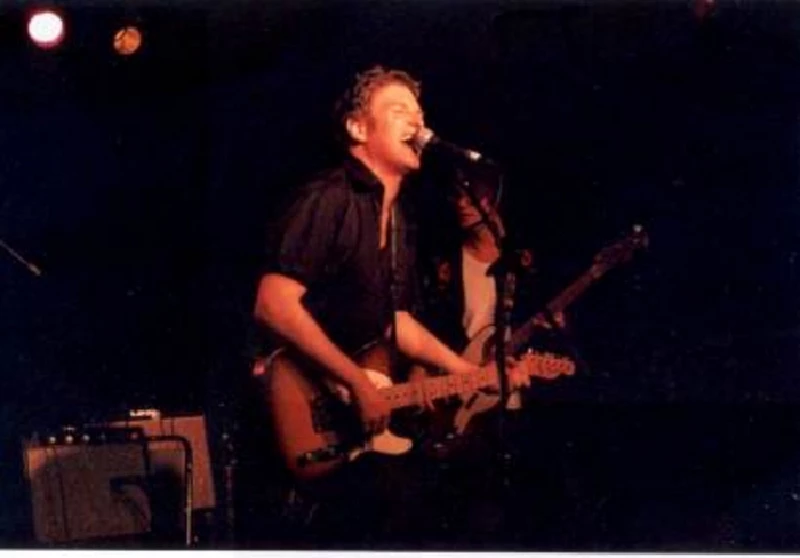
intro
Steve Wynn was the frontman with the abrasive and influential dream syndicate, but has also had a long and eclectic solo career since that band's break-up in 1989. Hhe speaks to Anthony Strutt about his two decades in the music business
Steve Wynn was the voice and songwriter of Los Angeles' the Dream Syndicate who were playing loud songs of noise and confusion before it became hip with the Jesus and Mary Chain and My Bloody Valentine in '85. The group had a very successful career, and first forming in 1980, put out their first EP in 'The Sure Thing' in 1982 . They released four studio albums, 'The Days of Wine and Roses'(1982), 'Medicine Show' (1984) 'Out of the Grey' (1986) and 'Ghost Stories' (1988) before splitting up in 1989. They also put out two live albums, 'This is Not the Dream Syndicate...Live' (1984) and 'Live at Raji's' (1989), a recording of their farewell gig. Wynn, who moved from Los Angeles to New York in the early 90's, went solo, and has released a succession of albums, which include 'Kerosene Man' (1990), 'Dazzling Display' (1992), 'Fluorescent' (1994), 'Take Your Flunky and Dangle' (1994),'Melting in the Dark' (1996), 'Sweetness and Light' (1997), 'My Midnight' (1999), 'Here Come the Miracles' (2001), and this year's 'Static Transmission'. The last two albums have found him returning to the noise roots of his past. He has also worked with Gutterball, a garage rock band, and has recorded with them two other albums, 'Gutterball' (1994) and 'Weasel'(1995). In recent years he worked primarily with his backing band, the Miracle 3, which features his girlfriend Linda Pitman on drums, Dave DeFrietas on bass and former Green on Red man Chris Cacavas on keyboards. In 2002 he toured Britain with the Willard Grant Conspiracy's Robert Fisher, Lambchop's 'Deanna Varagona' and the Silos Walter Slas-Humara on the Songwriters' Circle tour, which found all four musicians taking it in turn to perform their songs and helping out on each other's numbers. I spoke to Steve , over the course of two evenings, one at the London Camden Underworld, and one at the London Borderline, about his long and eventful musical career. PB: I have been into your music now since 'The Sure Thing E.P.' in 1982. SW: Wow, that's the beginning, yeah. PB: I believe you did some demos before that as the Suspects? SW: That was the first Dream Syndicate record. It consisted of : 'Last Chance For You' and an early version of 'That's What You Always Say' PB: Was that with Kendra Smith ? SW: She was the lead singer with that band. PB: Was that your first introduction to playing live music? SW : Well, I had been in bands since I was 9 years old. I played in my first band when I was 9 and played in bands all the way through high school and college. The Suspects was a college band. We were all impressed by punk rock and we wanted to be in a weird Punk Rock band. It was like a school for being in a band. We learned how to play gigs, to load gear, to play for an hour and to stay in tune and all those type of things. It was a real good band and it was fun and it was a typical band for those times. PB: I believe you are originally from L.A.? SW: Yeah. PB: So did the city's past influence you, because it was the city that produced Love, the Doors and all that scene? SW: In a way, but when you are 9 years old in L.A. you are not going to be influenced by the Doors or Love or the Buffalo Springfield because you are not going to clubs or big shows. I was more influenced by the music of New York and bands like the Velvet Underground, Television, and the Ramones. As much as I love L.A. and I have grown to love all the music there, I have always sympathised with the music of New York and also London. PB: The Dream Syndicate lasted for about 9 years and had various line ups. I believe Kendra left first. Why did she leave? SW: I think everyone has different ideas on what happened and I have heard Kendra give about five different reasons for leaving. I think it was a combination of things. We were moving in a direction she didn't want to move in. The Dream Syndicate began as this band who would do 30 minutes jams and try to completely destroy ourselves each night and I think that's the part she liked. As we got more into songwriting, we were still pretty out there. but it became a little more structured. She didn't like where we were going and I think touring was getting her down. She also started dating David Roback and I think they wanted to do a band together, so all those things combined (Kendra Smith formed Opal with David Roback, When she left, they changed vocalist to Hope Sandoval and beame Mazzy Star-AS) PB: Around the time of the Dream Syndicate, R.E.M. came along. Would you have liked the Dream Syndicate to have had the same street cred as R.E.M. and got bigger at a critical level? SW : I think street cred wasn't a problem, I think we had a lot of street cred but we didn't have the same popularity and record sales. Critics and college radio loved us, but the sales were harder. I get asked this question a lot, but we were two very different bands. We came out at the same time. We were both playing guitar music, both underground, and playing the same type of clubs but the fact is R.E.M. were a pop band and still are. R.E.M. play more of a suave pop music, and Michael's voice is different to mine. I'm really in a way amazed that we were as popular as we were. Wwe were built on confrontation, on feedback, on horror, on darkness and those aren't things you do if you want to sell millions of records. PB: I don't know, it was quite popular at that time? SW Not then. Now, yes. We're talking before Nick Cave, and the Jesus and Mary Chain. These are different times now. Sure, yeah, everything is darker. Nirvana were a very dark band but in 1982 that was a very strong dividing line. We had a lot of goofy safe bands and we went down a more difficult road. I think we revelled in it. We wanted to be a band that forced people to love us or hate us and as time went on, we backed away from that, but, early on, we went with it and stuck by it. We are still very proud of that . 'The Days of Wine and Roses' wasn't 'Murmur'. They are two very different records. We had the same friends, played the same clubs, liked the same records. We got on and hung out together, but they are two different records. PB: Why did you decide to split the Dream Syndicate up ? It was just after the album 'Ghost Stories', wasn't it ? SW : At the time I thought we had come to a dead end. The band was playing as well as ever. I was happy with 'Ghost Stories' as much as anything we ever did, but I thought we really had come to a dead end and if we did another record it would just be more of the same and I didn't want it to be like that. I didn't want the band to become predictable and boring and so I took the scenic way out of the things that we were doing. I thought we had run out of ideas. I think we were going through the motions,. They were good motions, but we were going through them and at that point I just wanted something different. I didn't want to break up the Dream Syndicate because I didn't like the people. I didn't break it up because I didn't like the people anymore. I wanted to play with other people. I think there are different reasons why people go solo. There are people who go solo because they can't stand each other and that wasn't the case. There are people who go solo because they don't like the music and that wasn't the case either . I wanted to do some different things. It, therefore, made sense to change things. PB : That's fair enough. Are you all still friends ? Do you still see one another ? SW : Yeah ! PB : Are they all still involved in music in one way or another or are they all pretty much retired ? SW : Some are. Some aren't. Paul Cutler from the last line-up isn't doing music now, but is doing music biz type stuff. The bass player Mark Walton plays in the Cottonhall Drifters. He is very active. Dennis Duck, who was there for the whole length of the band, is still playing music. He is playing with his pre Dream Syndicate band, the Human Half. Kendra Smith makes albums about every six years and is the Syd Barratt of the Paisley Underground. That leaves Karl Precoda, who is a professor in Virginia, but who is still making records as the Last Days of May, which is a sort of art type thing. PB : When the band split did you think "I still want to do this" or did you feel like not carrying on because I believe you took a year out to write the first album, 'Kerosone Man' ? SW : I actually took a year, where I didn't play any shows, didn't record anything and thought about what I wanted to do. I was more terrified in that year than at any other time because I figured breaking up a band that people liked, that was popular, that even I liked on an impulse, on a hunch, whatever it was, might be a stupid idea. I was nervous. I didn't know for sure what I wanted to do. I knew I wanted some different and it took about a year to figure it out and by the time I recorded 'Kerosene Man' I knew and I was really happy with the record. It felt great, but up until that point I was full of doubt. PB : If you listen to that album you experiment with a lot of different ideas. You use jazz and violins.... SW : Exactly ! The last thing I wanted to do was the same thing as the Dream Syndicate. Now at this point in my life I have ad libbed the Dream Syndicate because I have gone full circle and gone back there. It's the music I love-2 guitars, bass and drums, and that hard grooving noisy kind of music, but for a couple of records I didn't want to do the same thing. I got it out of my system, and it felt okay. By the time I made 'Dazzling Display', I was ready for anything and gradually I made it back to the sound that I loved at the start. PB : Which brings me to my next question which you have already answered in part. Have you found that you have brought your solo career to Dream Syndicate fans or, because as you do Dream Syndicate tracks live, that people have got into the Dream Syndicate because they have heard what you are doing with those tracks now ? SW : Both things. What was really nice with 'Here Comes the Miracles' was when that album came out, the response was really good to it. The press response, the fans' response, sales, the tours were so good that I have played in the last two years that a lot of people have gone backwards from there. Also though, when I play shows, the response for 'Miracles' songs is as strong as for Dream Syndicate songs which is a great feeling. It has taken me a long time to get to that point, but I could see it happening and it makes me very happy. I wouldn't want people just to come for 'The Days of Wines and Roses' all the time. I like that music, but you want to feel that you can do something which is relevant now. PB : Exactly that was 20 years and you to have to move on ! SW : 'Here Comes the Miracles' was a very determined record. I decided before I did it that I was going to make my best record ever, and, that if people couldn't see past that, then I would just be an oldies machine for ever. Fortunately when I made that record it worked. It was was what I hoped it would be and it helped me out a lot. PB : You have done deluxe editions, with remasters and extra tracks, of your first three solo albums, 'Kerosone Man', 'Dazzling Display' and 'Fluorescent',. Are you going to do that with the next two or three ? SW : Yeah, I want to do 'Melting in the Dark' and then over the next couple of years also something with the Gutterball stuff. I still haven't worked that one out yet, but eventually they will catch up with to where I am now. I am also hoping that there will be a reissue of 'Medicine Show' and 'Ghost Stories', so everything is getting there slowly. PB : I know that you were having trouble with A and M getting the tapes back for 'Medicine Show'. SW : We're still having troubles. There is a dim light at the end of the tunnel right now. Sid Griffin (of the Long Ryders/Coal Porters-ed) is working on getting it back from Universal, and he has contacts there, so it will happen. The main reasons for doing these re-releases are to keep them in print and to have bonus tracks. Another reason is that you get much better sounding CDs now because when they originally issued them they sounded like crap, and I just want the chance to make them sound better. PB : Of all the records you have made, have you ever started something and not liked it ? I believe 'Fluorescent' wasn't going to be released at one stage. SW : Yeah, that was because it was originally recorded as a demo session. It has happened to me a lot of times with several records. I have gone in to put songs on tape and walked out and realised that I have captured the song. There has been no reason to go back and re-do it. That's what happened with that record. I think the toughest record to make was 'Medicine Show'. I love that record, but it was an unpleasant record to make. it was no fun. It was a struggle all the way. There were a lot of arguments, and it probably shelved my friendship with Paul Cutler for ever, but the result was a record I like a lot (Laughs), so I hope it was worth it. For all the pain, the end result was good. PB : Onto the Miracle 3 ! You have had various musician friends play on your records. This is the first time that you have credited them though as Steve Wynn... SW : Right ! PB : Is this because you feel the band is the most stable and the one you are most proud of to include it ? SW : I don't know about the most proud because I have been proud about most of the people I have played with, but the fact of the matter is that I have played more shows with this line-up than any other line-up and that includes the Dream Syndicate. I have played over 200 shows with them. It really is a band. It involves a lot of band interaction. In a way it was me saying this is a band, this is not a singer/songwriter thing. I'm not David Gray or James Taylor, but you guys are a part of this. It works both ways. My way of making records and playing is as a member of the band. I very rarely go aand say "Here are my demos. Play what I did." I get off on hearing things from people that I didn't suspect. Surprise is exciting. You can't get surprised when you write all the parts out yourself. PB : How did you meet all the members ? I know that you know Chris Cacavas originally from LA. because you produced the second Green on Red album, but how did you meet the rest ? SW : Let's see ! I know Chris from way back and Green on Red days. I met Linda because she played drums in a band called Zu Zu Petals and they opened a show for me in '92 in New Jersey and I thought she was great and stayed in touch. She then moved to New York and I encouraged her to move to New York because of the all the gigs we had there. That was four years ago. I met Jason because he worked in my favourite record store and he gave me good deals on records for the lot of crap that I traded in. He was a very big fan of my music and, when it got to the point that Chris Brokaw couldn't go on tour, Jason was someone who knew all my songs, had no girlfriend and no job. That worked out really well. PB : I read somewhere that when you get Chris Cacavas involved in a record that he changes it. In what way ? Is it because he looks at things in a different direction ? SW : He's got very... PB : He sort of mucks it up in a good way ? SW : He doesn't do what you expect. At the same time we come very much from the same background in the things we love, the things we have done, where we are from, what we listen to, and our attitude towards things. I trust him. A lot of the times, if a player came in and wanted to muck things up, I would be a very suspicious man. With Chris though, I give him a lot of leeway. I trurst him to surprise me. I know he has my best interest at heart and he loves what I do, so of all the people I play with, I have the sort of biggest kinship with him. I have stuck with Linda for a lot of records and tours, but with Chris we come from so much the same place that I just love what he does. PB : Do you write constantly even if you don't end up using material or do you hit any dry patches ? SW : I don't write on the road. I wish I did, but touring is hard. I would love to, but, at the end of the day, I just want to sleep or read a book or whatever. I think I have written about 5 songs on the road in my life. At home I'm write quite often. I don't write all the time. After a tour, I hit a period of decompression and when that passes, I hit a groove and write almost every day. I think that it is fun. PB : On the ineternet there is Wynntree, who put out lots of semi-unofficial compilation CDs. Do you approve of what they put out ? SW : They don't come up to me and say "Can we put it out ?", but I say "Do whatever you want to and do me a copy ?" And that's fine by me (Laughs). I think that it is a cool thing. I'm flattered that people choose to collect various things of mine. It's not hurting anybody. I don't have a problem with it at all. PB : Are you surprised at how fanatical Wynn collectors are ? SW : Well, I'm grateful. I'm happy. It's flattering. I feel I put a lot of myself into what I do. It's all part of the motivation of making a record. I like to please myself, to make myself happy. I do put it in mind though that a lot of people love my music. It means a lot to them and I, therefore, try to to make records that they like. It's another part of the motivation of doing it. If I made a few crappy half-hearted records or shows, I'd be gone. PB : Nowadays I know if you make one or two bad records people will drop you or forget about you so quickly. SW : Yeah ! PB : Your passion in your performance really comes through in what you do. SW : I think that it is better to make a few bad records that you believe in whole heartily than to make a record that you don't care about. I think, that if I made a record that was really weird, but it was how I felt and I put my heart into it, people would forgive me. If I made a record awash of emotions and I had other things on my mind, then that would be more of a problem. You can't do that too many times. If you're boring and half hearted, that is when people write you off. It is like when Neil Young made 'Trans' or Lou Reed was allowed to make 'Metal Machine Music' they were obviously extreme things they had to do. If you hear bad Stones records every five years, after a while, it's like "Forget it ! I have heard it already." PB : Are you content with being just a lyricist, a guitarist and vocalist or would you like to learn anything else ? SW : I love playing bass. I do demos at home. I play everything. I do demos at home. I play everything, keyboards, drum machine, bass. I can't play drums. I love playing bass, but I don't need to. Dave's so great. I know so many great musicians. I don't know why I would need to. PB : Do you still want to prove people wrong when they listen to one of your albums because what they get on record isn't what they will get from your live shows ? SW : That's a good point. I think a few of my records are like what you will hear at shows. I think the songs on 'Melting in the Dark' sound pretty similar live. I think that 'Miracles' also is largely a live record with a lot of variety in there. PB : There's a lot of variety in 'Static Transmission' as well... SW : I see this as a different thing. This one has less of a live sound. It's more of a restrained record which is what I wanted. It changes from record to record where the live show is. I always want this catharatic, no-holding-back leave-me-in-a-kind-of-sweat experience with live shows, and on records I don't really want that. PB : The new album is quite mellow in places, but after four songs it kicks in. Do you like to show different sides of light and dark, and different textures ? SW : I definitely wanted to do that on this album. I think it's a kind of melancholic record. It's a bit claustrophobic, and dark and sweet at the same time. It's a lot more moody and uncertain whereas 'Miracles' was a swaggering, kind of cocky record. It was just the way I was feeling at the time. PB : I imagine that with every album it's the mood you are in while you're recording. SW : Yeah ! I rarely pursue it as "Okay, this record's going to be the definite statement." It is just where I am at that moment. The closest I ever got with that was 'Miracles'. At that point I did want to make a record that tied up everything I did and freed me up for whatever I wanted to do next. That was a rare time when I did that. Usually when I go into the studio it is where I am at that time. I have always liked records like that. My favourite records are records that feel like they sound, and are of the moment. I always had this idea that 'Exile on Main Street' (Famous Rolling Stones album-AS) or 'Tonight's the Night' (Famous Neil Young album-ASd) would have sounded different if they were made 2 months later, whether that's true or not. I like that level on a record, catching the moment with complete honesty and truth and that's it. PB : And that's why they have stood the test of time. SW : I think that if you try to do that sort of thing it will hold up because it's true to the moment. If you try to represent a trend or an era, it's going to sound like that trend or era later on. PB : When you go into a studio to record, have you got most of it sorted in your head beforehand because studios are expensive ? SW : Not where I record (Laughs). The place we record in Tucson is a really cheap studio. It's so nice to record in Tuscon rather than New York. Even then though it's on a budget. There are times when I have things worked out, but I like to leave things to chance. The studio costs $300 an hour, so you do have the freedom to screw around, but it is still a few thousand a day. Again I like surprises, and when things don't go the way you think they could happen. it's always exciting. PB : How do you go about choosing album titles ? Does it set a mood for the whole thing or is it the last thing you decide upon when you have to come up with something ? SW : On 'Miracles' there is a song of the same name, but that song didn't have a title, and I remember the last night of the session at three 'o' clock in the morning, it came into my head and I wrote it down. It was so simple. This time I went back and forth with different things. A lot of the time I look at the songs to see if a word sticks out. It was hard this time, This was a real bitch. I don't know why. This was a more difficult record than 'Miracles'. I think it had to be that way. It's a harder record to get into, but I think that the rewards are greater when you do. PB : Is the Songwriters' Circle still carrying on ? SW : That is Robert's vision, so he plays whith whoever wants to play with him. I loved that tour. It was real fun. I got to play with people I know personally, but I got to see how they worked, hear those songs, got to interact, got to new places, played shows in a different way. I would love to do that again. PB : I believe that you a big thriller novels fan. SW : Yeah ! PB : Would you like to do a concept album of spoken word music ? SW : Like Lou Reed's 'The Raven' or the new Neil Young album, 'Greendale'. I can't see myself doing spoken words and music. It doesn't excite me. I like grooves too much. I would love to write a novel though. PB : Thanks for your time. SW : Cheers ! The first part of this interview was originally published in Anthony Strutt's former fanzine, 'Independent Underground Sound'.
Band Links:-
https://www.stevewynn.nethttps://www.facebook.com/stevewynn
Picture Gallery:-
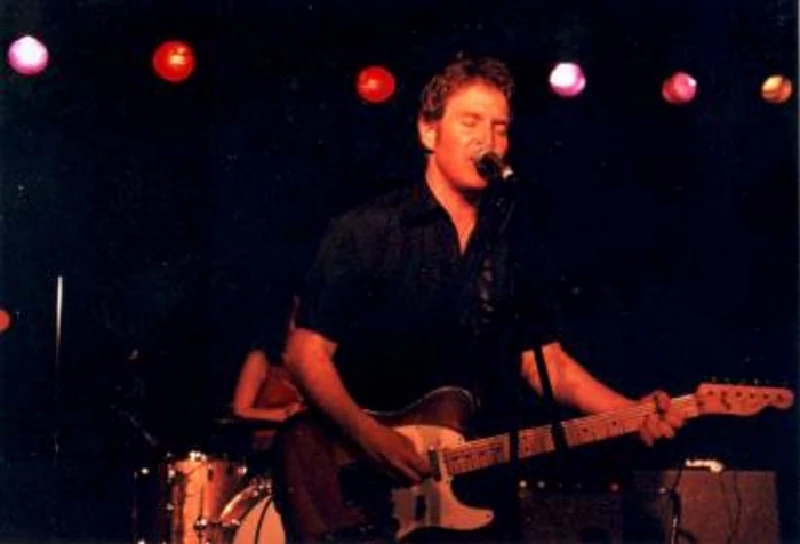
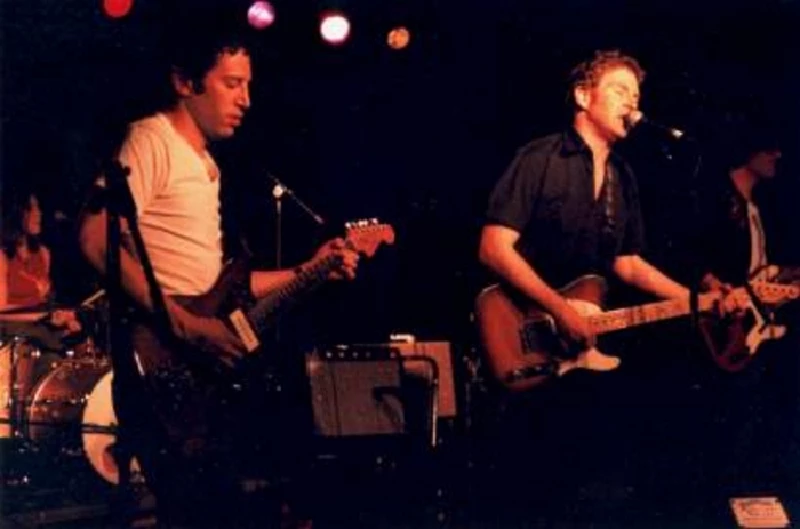
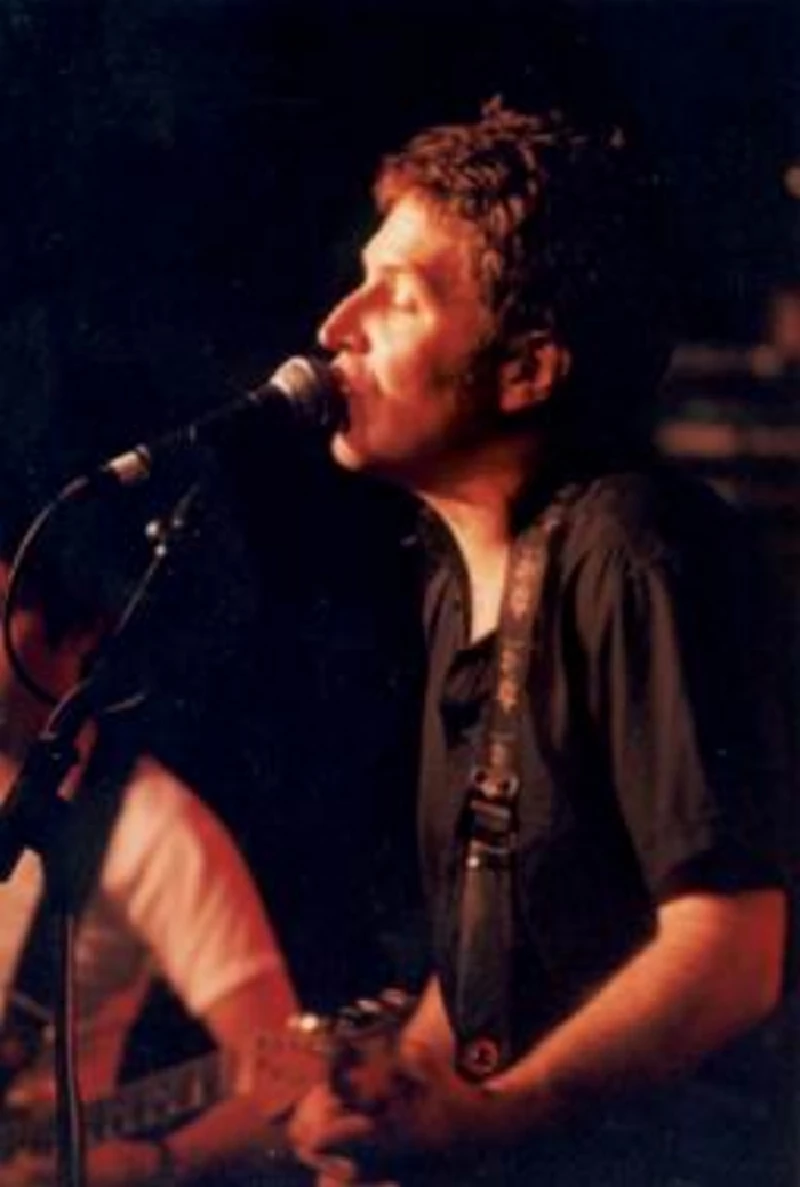
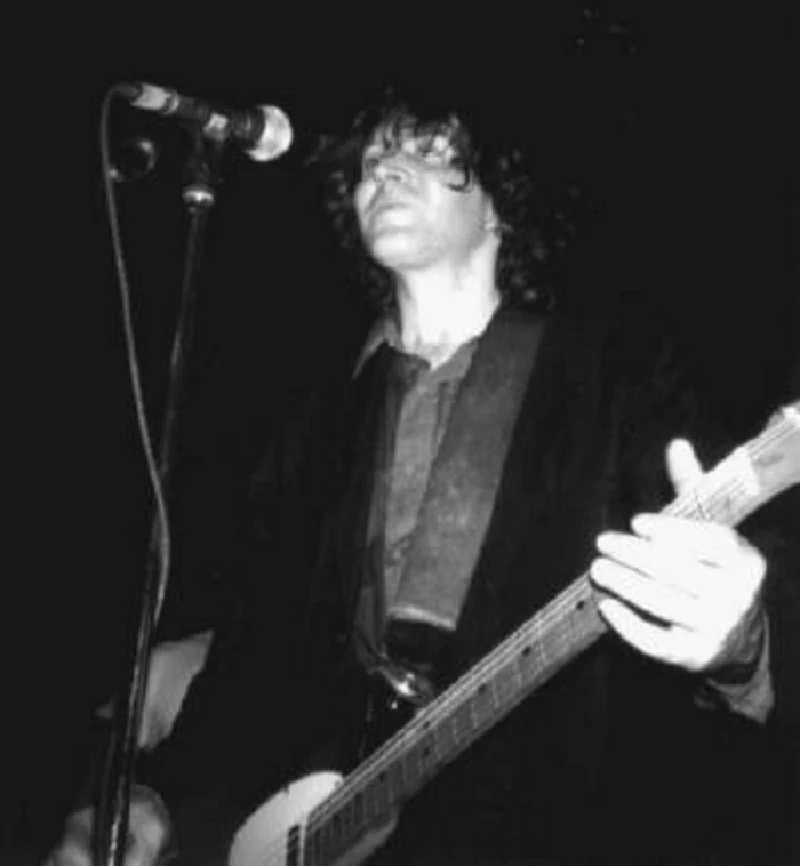
interviews |
|
Interview (2023) |
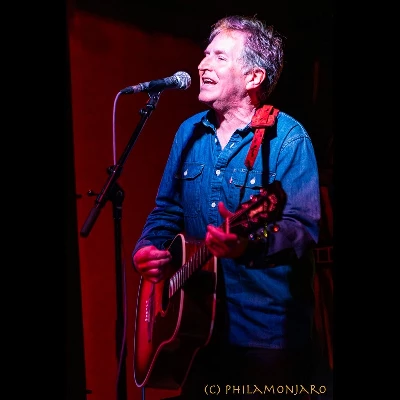
|
| The Dream Syndicate's Steve Wynn talks to Philamonjaro about his new live CD 'Journeyman' and his recent European acoustic tour. |
| Interview (2007) |
| Interview (2002) |
live reviews |
|
Fun House, Madrid, 25/10/2023 |
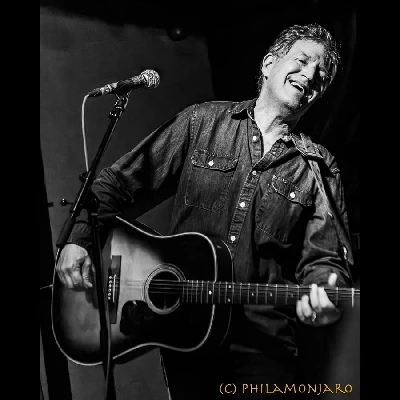
|
| Philamonjaro finds The Dream Syndicate's Steve Wynn making a surprisingly big sound at an acoustic solo gig at The Fun House in Madrid |
reviews |
|
Tick...tick..tick... (2005) |
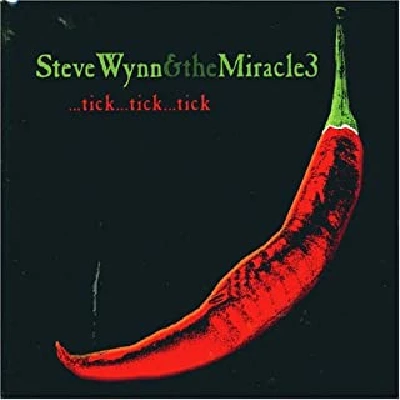
|
| Excellent new album from ex-Dream Syndicate frontman Steve Wynn, which shows itself to be the best album to date in his lengthy solo career |
| Static Transmission (2003) |
most viewed articles
current edition
Carl Ewens - David Bowie 1964 to 1982 On Track: Every Album, Every SongArmory Show - Interview with Richard Jobson
Bathers - Photoscapes 1
Colin Blunstone - Thalia Hall, Chicago, 16/7/2025
Visor Fest - Valencia, Spain, 26/9/2025...27/9/2025
Billie Eilish - O2 Arena, London, 10/7/2025
John McKay - Interview
Robert Forster - Interview
Loft - Interview
the black watch - Interview
previous editions
Heavenly - P.U.N.K. Girl EPManic Street Preachers - (Gig of a Lifetime) Millennium Stadium, Cardiff, December 1999
Oasis - Oasis, Earl's Court, London, 1995
Paul Clerehugh - Interview
Trudie Myerscough-Harris - Interview
Beautiful South - Ten Songs That Made Me Love...
Pixies - Ten Songs That Made Me Love...
Doris Brendel - Interview
Prolapse - Interview
Simon Heavisides - Destiny Stopped Screaming: The Life and Times of Adrian Borland
most viewed reviews
current edition
Amy Macdonald - Is This What You've Been Waiting For?Sick Man of Europe - The Sick Man of Europe
Phew, Erika Kobayashi,, Dieter Moebius - Radium Girls
Alice Cooper - The Revenge of Alice Cooper
Davey Woodward - Mumbo in the Jumbo
Lucy Spraggan - Other Sides of the Moon
Blueboy - 2
Cynthia Erivo - I Forgive You
Vinny Peculiar - Things Too Long Left Unsaid
Philip Jeays - Victoria
related articles |
|
Dream Syndicate: Interview (2017 |
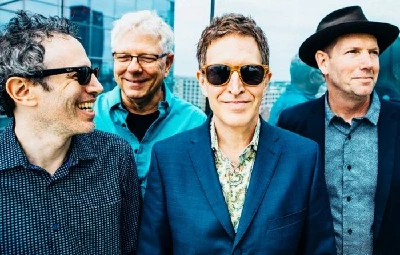
|
| John Clarkson speaks to vocalist and guitarist Steve Wynn about his decision to reform his seminal 80's alternative rock act the Dream Syndicate and 'How Did I Find Myself Here?', their first album in nearly thirty years which will come out in September |
Pennyblackmusic Regular Contributors
Adrian Janes
Amanda J. Window
Andrew Twambley
Anthony Dhanendran
Benjamin Howarth
Cila Warncke
Daniel Cressey
Darren Aston
Dastardly
Dave Goodwin
Denzil Watson
Dominic B. Simpson
Eoghan Lyng
Fiona Hutchings
Harry Sherriff
Helen Tipping
Jamie Rowland
John Clarkson
Julie Cruickshank
Kimberly Bright
Lisa Torem
Maarten Schiethart